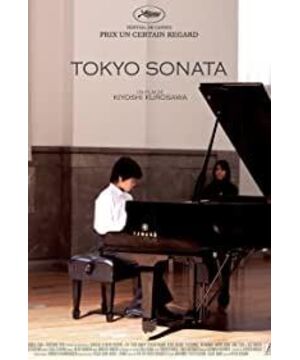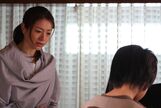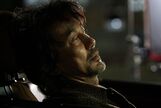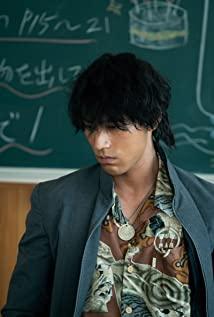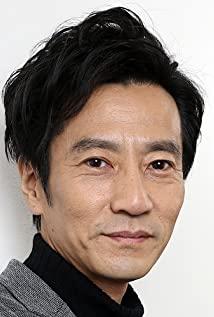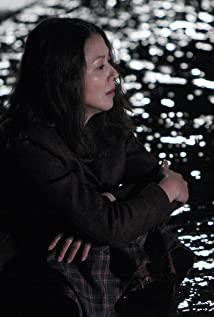The way people explore their hearts in the film is no longer an inward excavation, and what is reflected is no longer the traditional Japanese style such as mourning, mysterious, and lonely, but the incomprehension, indifference and indifference between people. Unable to communicate. The film also uses an objective examination of a family of four to point out the worries and sorrows hidden in modern Japanese society—and perhaps human society as a whole.
In the first two-thirds of the realistic depictions, the 48-year-old Kagawa Teruyuki was kicked out of the company by the company. Abandoned the elements of sensationalism and appeared authentic. If this drama is substituted into the current financial crisis and economic depression, it will resonate even more. The director obviously does not want this drama to have too much drama. In the realistic depiction, we can realize that even in a super-rich society like Japan, people are equally powerless and unable to resist when dealing with social changes.
This kind of change with no response - from employment to unemployment, leaving a person with social attributes out of the crowd, it brings not only the loss of life (livelihood, money, etc.), but also the psychological fault and out of control. Unable to bear the psychological pressure of being abandoned by society and deceiving their family members, their peers who have been unemployed for three months chose to commit suicide, which is an extreme but true portrayal of this problem.
The unfamiliar family relationship brought about by this is also reflected in the lack of internal communication among the family members and the extreme indifference on the outside. A virtuous wife, an adolescent eldest son, and a somewhat withdrawn second son, all of them have unspeakable sadness in their hearts, but they all reject each other's communication and relief. son) way to bear alone.
What's fascinating about this two-thirds is that it doesn't appeal to full realism. If it were just a realistic depiction of a midlife crisis or specific issues like unemployment, family, and society, it might just be a wonderful social or ethical drama. The film goes beyond the specific plot, and presents the individual of the current people, as well as the indifference and inability to communicate with each other through the inner loss of the family of four and the inner separation of each other. There is even a moment when one thinks of what it's like to watch an Antonioni-esque, psychologically realist film.
Issues come together as films must have an outlet for release (except Antonioni's). Of course, in reality, problems will exist indefinitely, and in many cases no solution is the solution. The film introduces the thief, played by Koji Yakusho, two thirds into the night, trying to wrap up the story with a dramatic change in family characters over the course of the night. The wife was kidnapped by a thief and had an unexpected trip without romance; the husband found a huge sum of money but was involved in a car accident, and seemed to have a new understanding; the second son was arrested by the police and locked up overnight; the eldest son continued to be absent because he joined the US military.
Such a deliberate arrangement is undoubtedly a risk. On the one hand, it completely deviates from the rhythm of the first two-thirds. On the other hand, it is easy to fall into the Japanese tradition of showing the inner heart. Sure enough, the wife was no longer silent at this time, but opened her hands to wait for the redemption of the void; the thief was also portrayed as a detached character troubled by inner demons, and the movie returned to the level of exaggerated Japanese psychological realism.
When I first saw it, there was a feeling of being choked up here, and of course we love these Japanese styles, but after all, the front part of the movie presents a certain texture very well, and we hope that it will be done in one go. But when I look back on this passage after watching it, I seem to feel some kind of good intentions from the director Kurosawa Kiyoshi. Perhaps for a family, or even for the entire human society, there are no solutions to the problems between people, only time can solve everything. Then, if you put infinite time on a limited time point, and see what the incomprehension of this life will look like, what's wrong with it? What's more, isn't a movie meant to be dramatic? Therefore, I think that the film takes a sharp turn at this moment and introduces a dramatic and intense Japanese-style psychological drama, which is precisely to give an answer that belongs to the film.
The wind and rain of this night condensed too many visualizations, everyone felt that life was long, and everyone was eager to start over. (It seems that my expression is also lyrical.) However, the film turns again near the end, and four months later, the style of the film returns to the level of reality. But this time, it is not the origin of the first two-thirds, but the director, the characters in the film and our efforts. That condensed night was still diluted by further time, and presented an unsolvable proposition. However, this is no solution after our efforts, at least at this moment we can let go.
In this way, Kurosawa uses a seemingly ordinary realistic theme to present us with the essential proposition of human nature. This is the same as his excellent thrillers, through a certain genre, conveys deeper thinking about life. It is easy to see the shadow of his thriller in the images and soundtracks in the movie. Perhaps in the director's view, seeing the nature through the world is full of mystery.
Like Teruyuki Kagawa's episode of cheating on his family after he lost his job, the ending of the movie with a universal piano piece seems normal, but it's a very rewarding ending. What it presents is not enlightenment or impermanence, but a kind of calming, so that the efforts of the characters in the movie and our efforts can be comforted by an inexorable relief. This is the comfort that art (music and film) brings to us, It is the only comfort we can get.
View more about Tokyo Sonata reviews


